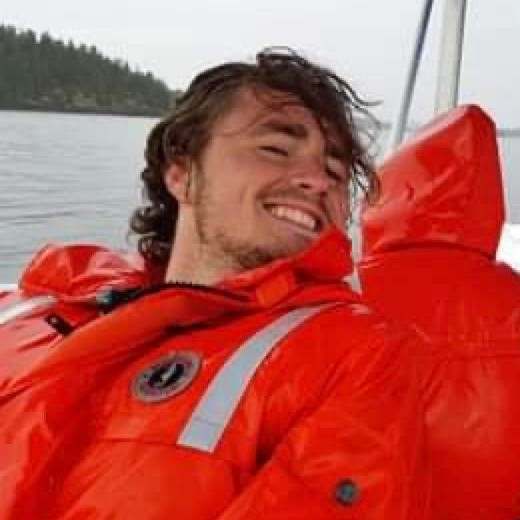About This Project
We aim to combine eDNA sampling and biologging to study predator-prey interactions in the deep sea in real time. This innovative approach will provide unprecedented insights into deep-sea ecology, advancing scientific understanding and conservation practices by informing ecosystem management in a severely data-deficient environment. This will be the first attempt to physically combine these technologies, setting a precedent for future studies with different animals and ecosystems.
Ask the Scientists
Join The DiscussionWhat is the context of this research?
There are many mysteries yet to be solved that are of paramount importance for the protection of marine ecological systems. For example, sperm whales hunt deep-sea squids at depths to a km and deeper, but these interactions have never been observed. eDNA (a non-invasive molecular technique to characterise species presence) and biologging both provide critical insights, especially in areas inhospitable to humans, yet their integration remains underexplored.
The pioneering combining of eDNA & biologging revealed the prey community of whales foraging in the deep sea. Direct, on-animal combination however, required to observe the actual predatory interaction, has not been attempted and would have significant consequences for both separate fields, identifying integration challenges and possibilities. Novel techniques in eDNA sampling have seen shifts (link & link) that offer an opportunity to physically link eDNA and biologging systems.
What is the significance of this project?
The deep-sea holds 95% of our ocean’s water, and the world’s largest biodiversity and biomass reservoirs, heavily exploited by top predators, including sharks and whales. This environmental functionality is understudied as it can't be directly observed – we therefore require advanced, and tailored technology.
Combining innovative tech is a logical progression in pursuing high-value data on ecosystems and species, as an XPRIZE competition for ecosystem monitoring demonstrated. Concurrent observation of predator and prey in this dark, cold, remote and highly pressurised environment requires combining advanced remote tech such as biologging and eDNA. Precise data on predator-prey interactions would create more statistically significant datasets to focus conservation efforts and policy in a data-deficient ecosystem. This project can shed light on this elusive datastream for researchers and conservationists.
What are the goals of the project?
Our goal is to develop the first integration of marine biologging and eDNA. Our key principles: high-quality data collection, precise spatio-temporal correlation, operational efficiency, and tag integration. Objectives:
1) Design e-DNA-biologger for whale-prey systems
Building off prior developments to develop prototypes that will merge two siloed technologies and be tested against previous contributor works and methods.
2) Compare eDNA recovery from biologger to alternate methods
Lab testing under conditions that mimic varying DNA concentrations, rapid movements, and short collection times.
3) Field testing
Pilot field data recording using developed system in existing field site (Azores).
This approach will develop a feasibility tested system whilst advancing biologging & eDNA methodologies, scoping potential further research, and providing a framework for combined data acquisition and addressing integration challenges.
Budget
The budget will facilitate the time and resources needed to achieve the project goals. The budget is split into two categories. The first will serve for experiment runs which will include a test rig, lab equipment, and funding for logistics if renting a boat is needed. The budget should cover multiple rounds of testing as well as early experimentation.
The second category is reserved for prototype development. The fidelity of this prototype will go from paper based through to additive manufacturing, requiring high costs in materials, machinery, and experts time. The budget for the prototypes is designed to cover multiple rounds of prototyping with the goal of having a final version that is appropriate for field testing.
 Project Timeline
Project Timeline
Preparation will focus on; questions, hypotheses, procedures, necessary equipment.
Lab-based testing will inform our field tests and larger questions requiring greater control like “How is captured eDNA affected by our proposed mechanism?”.
Field-based experimentation will test aspects of the device at the existing field site (Azores) and develop the design context.
Analysis and reporting of data (mechanical, electrical, genetic, operational, etc.).
Apr 30, 2025
Project Start
Jul 01, 2025
Formal experiment procedures complete (lab-based tests)
Aug 01, 2025
Equipment for lab testing ready
Oct 15, 2025
Preliminary lab-based tests complete
Oct 15, 2025
Initial designs for field-model
Meet the Team
Team Bio
The team unites ecologists and engineers with expertise in biologging, eDNA, tech development, and academic rigor. Ecologists Dr. HJ Hoving , Dr. V Merten (GEOMAR), and Dr. F Visser (NIOZ) specialize in whale and cephalopod ecology, collaborating for a decade on whale-prey interactions using diverse technologies (link). This program identified the need for on-predator prey eDNA recording and that enables direct testing in an established field site with rich data streams.
Harry Hosker
I am an independent conservation technology developer with a background in engineering, design, and ecology. My skills are broadly in the technical development of devices, and interdisciplinary management of teams. Currently I am working on projects to enhance and expand eDNA sampling methodologies using technologies developed for mining extractions. My current work is in partnership with the Natural History Museum and the Royal School of Mines (Imperial College London). I have a passion for biodiversity and work hard to understand how my skillset can best impact conservation in both academia and practice.
Lab Notes
Nothing posted yet.
Project Backers
- 0Backers
- 0%Funded
- $0Total Donations
- $0Average Donation
